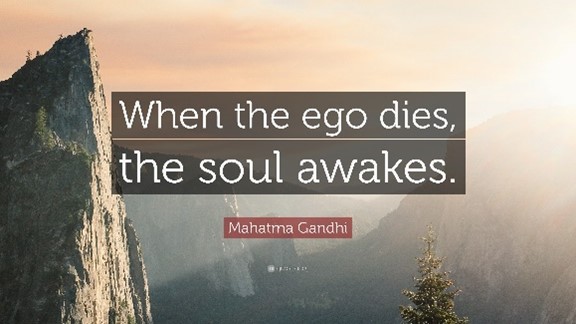This post packs a lot of power, but you are going to have to wade through an analogy about a foreign exchange student.

Imagine the following situation: a 17-year-old girl from Japan is qualified for and signs up for a foreign exchange program in the United States. The primary purpose of the exchange program is to help her (1) improve, even master, the English language; (2) experience a different culture and way of life; (3) further her education in a way the likely differs from her educational experience at home; and (4) build new relationships with the family she is placed with along with peers that she will meet in the program.
But, this is easier said than done for a 16-year-old. While excited about the opportunity, when she gets to the United States and put with her family, it quickly feels very overwhelming. Away from home in a foreign country, she feels cut off from her family and friends and is presented with a variety of opportunities that she doesn’t necessarily want to do, such as run errands, play with the host family’s kids, and go to social outings with the host family where she doesn’t know anyone and oftentimes there aren’t people her age.
So, rather than fully immersing herself into the program, she develops a habit of going to her room right after school and connecting with her friends back home, watching her favorite TV shows in Japanese, and doing what homework she has. Usually, she spends the whole afternoon and evening in her room, often not even coming out for dinner. Doing this is comfortable, familiar, and enjoyable. Where the alternative is uncomfortable, unfamiliar, and often awkward. Plus, she loves her family and friends back home and wants to maintain her relationship with them. She also wants to know what is going on back home, often feeling like she does not want to “miss out.”
Stepping back out of this situation, let me ask: Is she making the most of her experience? Is she mastering the English language, is she experiencing a different culture, furthering her education, and building new relationships?
I believe that the simple answer is “no.”
But, here is the interesting thing: In her mind, she feels fully justified. She has all sorts of great reasons why she is operating in the way that she does. In fact, whenever she engages in her reclusive behaviors, she has to justify her decisions and behaviors to herself, further entrenching her justification.
So, when she is asked to disconnect with her friends and family back home, spend less time in her room, and engage more with her experience, she becomes defensive, feeling as though she is being attacked: “Why would they ask me to give up my relationships back home?” “Why are they making me do things I do not want to do?”
As an outsider, it becomes easy to see that the experience she is having is below the potential for what it could be. She is underperforming and not gaining the full value of the program. But, in her mind, she believes that she is doing “the best she can.”
Application
Are you ever the “exchange student?” Have you developed habits that are comfortable and self-serving, yet limit your overall experience and effectiveness?
This is oftentimes why there is a disconnect in performance evaluations. Subordinates almost always feel like they are doing a much better than what their manager thinks they are doing.

But, I also see this with the leaders I work with, particularly the dysfunctional ones. Of course, they do not think that they are being dysfunctional, they are fully justified in the stances the take and the action they engage in. For example, when leaders curtly shut down an idea for improvement, are unable to admit a mistake, seek to do the easy thing instead of the right thing, or fail to empathize with a subordinate’s difficult situation, they often do these things for very justified reasons.

But, something else I observe with such leaders: they are often the only one in the organization that does not think they are dysfunctional. They are like the exchange student: justified, yet operating below their potential.
The reality is…
The reality is that each of us, in our own ways, are like the exchange student above. We are engaging in fully justified thinking and actions that are ultimately limiting our experience, effectiveness, and performance.
Now, I don’t know what your particular justified blind spot is, but I do know that it is rooted in the mindsets you possess. It is your mindsets that cause you to see your thinking and actions as being the very best. But, just because you see your thinking and actions as “the best,” does not mean that they are “THE best.” We just lack the mindsets and the perspective to see that. Just like the exchange student above.
What now…
It is only when we can come to a place where we can admit that we may not always be in the right and that we want to see things better that we have the ability to improve, to make the most of our situations. So, that is step #1.
After that, we have to explore other ways of seeing the world. We have got to face ourselves in an honest, authentic, open-minded, and exploratory way. Here are some ways that you can do that:
-
Take my free personal mindset assessment to awaken to the mindsets that you have. If you are like 95% of the people who take this assessment, you will identify at least one area where you will find that you are likely justifying a less-than-effective mindset.
-
Identify the main desires that are driving you and your motivation for what you do. Is it to avoid something (e.g., avoid looking bad, avoid not being seen as being right, avoid mistakes, etc)? If so, you would likely operate more effectively if you were motivated by a drive to live into new possibilities (e.g., learning and growing, thinking optimally, reaching a destination). Article: Do You Have Any of the Four Desires of Dysfunctional Leaders?
-
Be vulnerable and get feedback from those around you. What are ways that they think you could improve? What do they think you are missing out on because of how you live and operate? Article: The Best Leaders Ask for More Feedback
This is not easy because it forces you to admit that you have been wrong, living below your potential, and possibly having a negative influence on those around you. But, the options are quite simple: either keep operating blindly and continue living below your potential, or do the uncomfortable work of self-discovery and subsequent change.
Perhaps this is easier to see if we go back to the exchange student. She has a decision to make: Either continue operating the way that feels the most comfortable for her and not capitalize on the value of the program, or start doing things differently in order to fully capitalize from her experience, which involves getting out of her comfort zone.
Whatever your situation, I hope you choose to be courageous.











